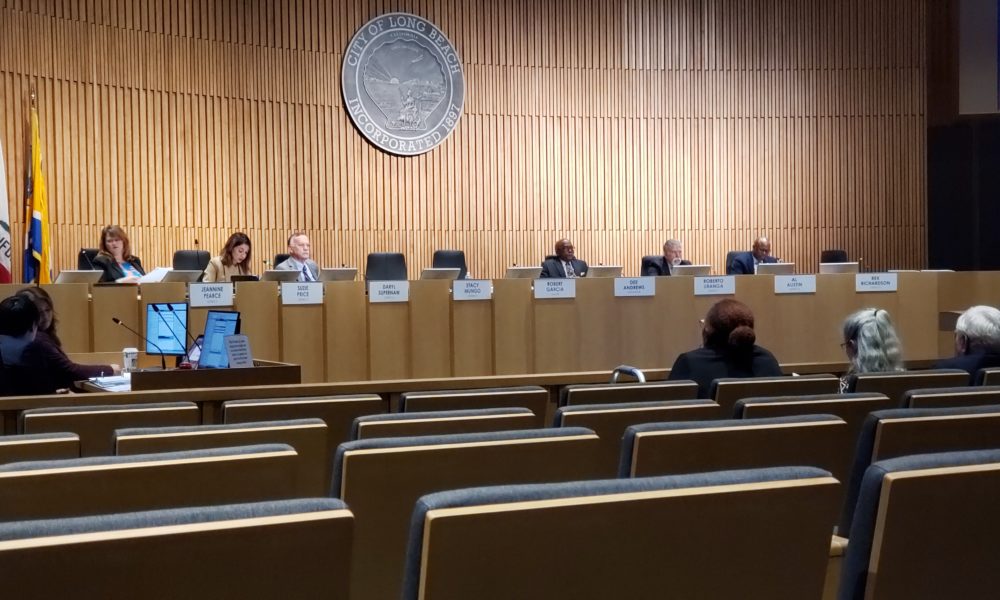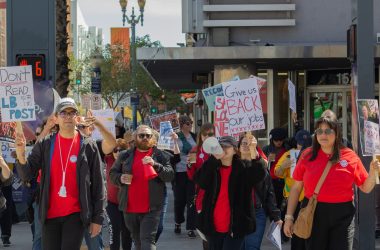The Long Beach City Council approved a recommendation to draft an ordinance that will require all landlords to obtain building permits before evicting tenants for “substantial remodels.”
The proposed ordinance stems from a loophole in the Tenant Protection Act of 2019, otherwise known as Assembly Bill 1482. The bill was passed by the California State Legislature in 2019 to prevent unjust evictions and rent increases and went into effect on Jan. 1.
The bill prevents landlords from increasing rent more than 5% plus the cost of living inflation in any given year. Rent increases are capped at 10%. In the case of eviction, the bill protects renters who have lived in residential units for 12 months or more.
Last November, the city council passed a moratorium on no-fault evictions due to an increase in evictions. The temporary ban ended on Dec. 31.
Since, landlords have been using a loophole in the bill that allows for evictions under the premise of “substantial remodels.”
During public comment, Hilda Delgado, district director for Sen. Lena Gonzalez, spoke on behalf of Gonzalez, who voted for the bill.
“It is critical that the city does everything it can to make sure tenants are not wrongfully displaced,” Delgado said.
She commended the council’s moratorium last year but voiced concerns over the effects of the loophole.
“Now, many tenants have received notices to vacate properties for what landowners consider substantial remodels, without a sincere effort to perform those improvements,” Delgado said.
During last week’s city council meeting, tenants of a complex on 64th street shared their renewed fears after being served new eviction notices.
“We thought that everything was all good, then, Jan. 3, we received another 60-day notice,” said Antonia Zavala, a resident from North Long Beach. Her voice was shaky. “We have students at LBCC and Cal State Long Beach … I don’t want to cut my children’s careers short.”
With the help of a translator, she shared that the building owner of her complex was undergoing renovations without permits. Last year, she was able to stay in her home because of the council’s moratorium on evictions. Now, she and other tenants of the complex of 64th Street are being evicted through the substantial renovation loophole.
Antonia Zavala lives in this complex on 540 E 64th Street. She’s now facing eviction under the premise of “substantial remodel,” but the owners of the complex are doing so without legal permitting from the city.
In response to tenant stories, Councilmember Mary Zendejas brought forth a proposal to address the loophole and to implement another moratorium on no-fault evictions. It’s her first piece of legislation as a councilmember.
Zendejas originally proposed the moratorium cover all evictions from Feb. 6, but Councilmember Jeannine Pearce made a friendly amendment to extend the moratorium to Jan. 1. Now, the drafted ordinance will include a moratorium on all pending evictions from Jan. 1 to Feb. 18.
“It makes sense that before we uproot families before children are taken out of their schools and have to move neighborhoods,” Pearce said. “We’re making sure landlords do their part first, which is taking out that permit first.”
If the ordinance is approved at the next city council meeting, landlords will be required to provide proof of building permits with all eviction notices.
Resident Sandra Tommasini voiced support for the ordinance. She’s currently being evicted under the premise of substantial renovation and has been gathering evidence against her landlord in an attempt to file a civil suit.
“The only recourse I have is to, after the fact, gather evidence that substantial renovations may not have taken place and then sue,” Tommasini said. “That seems like a ridiculous way to enforce the law.”
Malcolm Bennett, a property owner, property manager and contractor, voiced concerns over the cost of getting permits and urged the council to vote against the proposal.
“A lot of people don’t understand the process of pulling a major rehab permit, it’s not just something that you do,” Bennett said. “The amount of money to pay for a major renovation on a property is quite substantial, then they have to wait 60 days for the tenant to move out, and then start work. That causes a lot of delay.”
In the language of the bill, substantial remodel includes any structural, electrical, plumbing or mechanical system that requires a permit from a governmental agency. It also includes the removal of hazardous materials, including lead-based paint, mold or asbestos.
According to City Manager Linda Tatum, all of these remodels require building permits.
The bill specifically states that cosmetic improvements alone, including painting, decorating and minor repairs do not qualify as substantial rehabilitation.
If the new ordinance is passed, landlords will have to go through the proper permitting procedure before an eviction notice is served. Even then, the landlord must provide a copy of the permit or a description of the nature of the work along with their notice.
The first draft of the ordinance will be presented to the city council at next week’s meeting on Tuesday, Feb. 18 in the Civic Chambers, 411 W Ocean Blvd.





Pingback: New City Council ordinance requires landlords to provide building permits for substantial remodel evictions